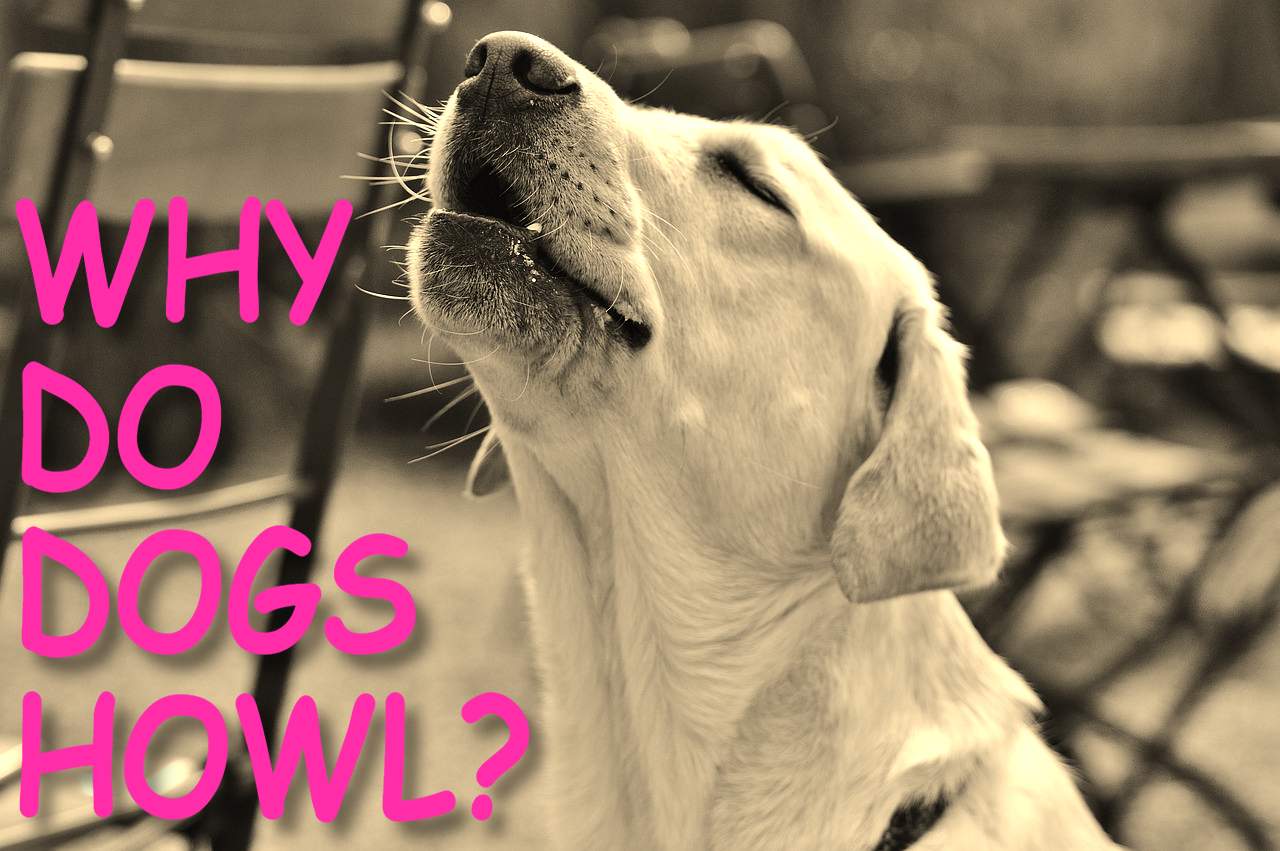Table of Contents
Intro
Do you ever wonder why dogs howl? Many people assume that it is due to the animal's wild history and genetic makeup, however, there are a number of reasons why dogs may howl. Dogs may use their vocalizations for many different purposes, from communicating with other animals to expressing their emotions. In this article, we will explore the various reasons why dogs howl and what we can do to help prevent or manage excessive howling.
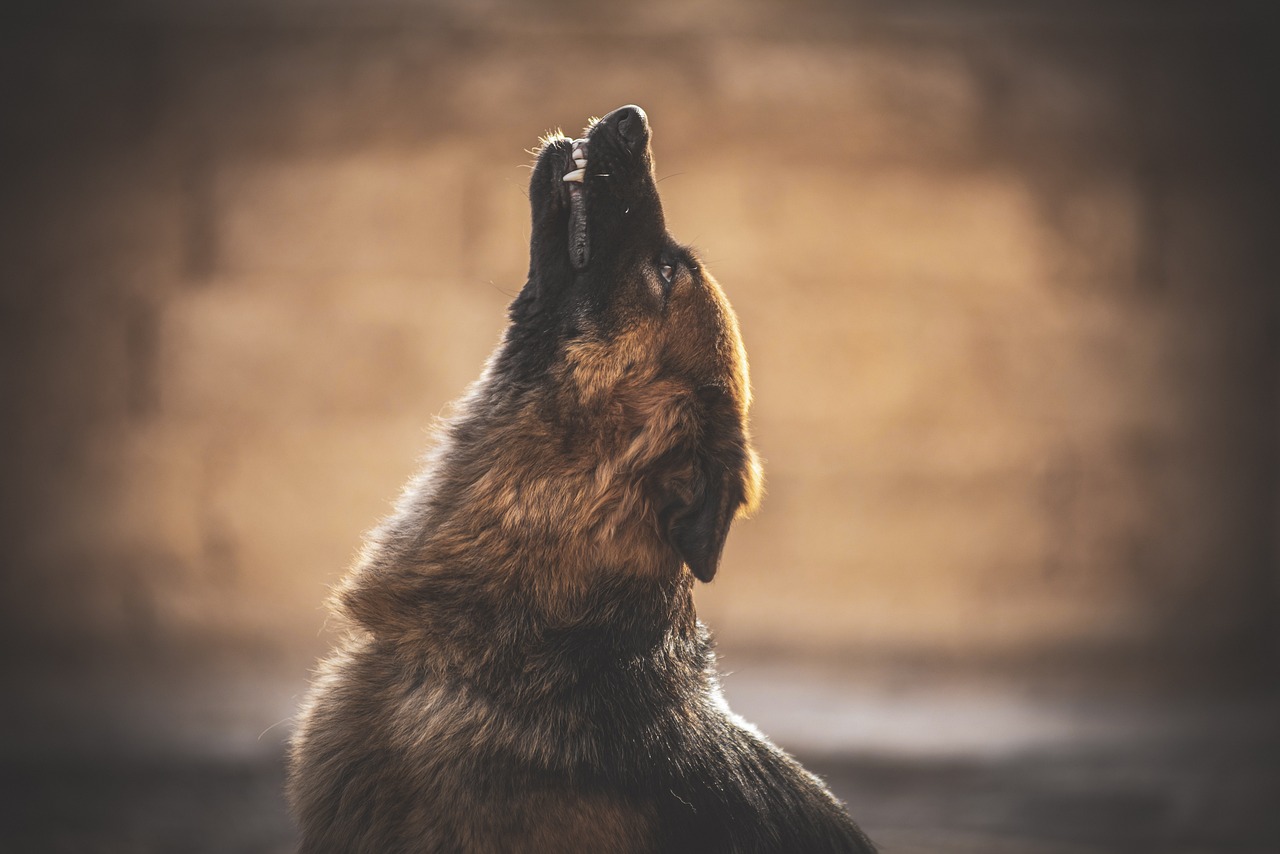
Dogs Howling
Dogs are social animals and use howling as a form of communication. They howl to express their emotions such as loneliness, fear, or excitement. Howling also serves as a way for dogs to locate other pack members. When one dog starts howling, others in the area may join in and create a chorus that can be heard from miles away.
Another reason why dogs howl is related to their ancestry. The domesticated dog's closest relative is the gray wolf, which is known for its distinctive howl. It's believed that domesticated dogs inherited this trait from wolves and continue to use it even though they have evolved into different breeds over time.
It's important to note that not all dogs howl and some breeds are more prone to it than others. For example, Siberian Huskies are known for their loud and frequent howls while other breeds like Chihuahuas rarely if ever, let out a howl. Overall, whether your dog is a frequent or rare “howler,” understanding why they do it can help you better understand your furry friend's behavior and needs.
Reasons why dogs Howl: What type of howling
Howling is a natural behavior for dogs, and they do it for various reasons. One reason why dogs howl is to communicate with other dogs in the area. They use howling to establish their territorial boundaries or alert other canines of potential danger. In addition, some breeds are more prone to howling than others due to their history as working or hunting dogs.
Another reason why dogs may howl is separation anxiety. When left alone for extended periods, some pups may become anxious and start vocalizing loudly, hoping that their owners will return soon. Howling can also be a sign of illness or distress since it is one way in which a dog communicates pain or discomfort.
Overall, it's essential to understand your dog's body language and vocalizations when trying to interpret its behavior accurately. Howling should not always be seen as negative behavior but instead considered as an instinctive expression of communication between canines and their humans alike.
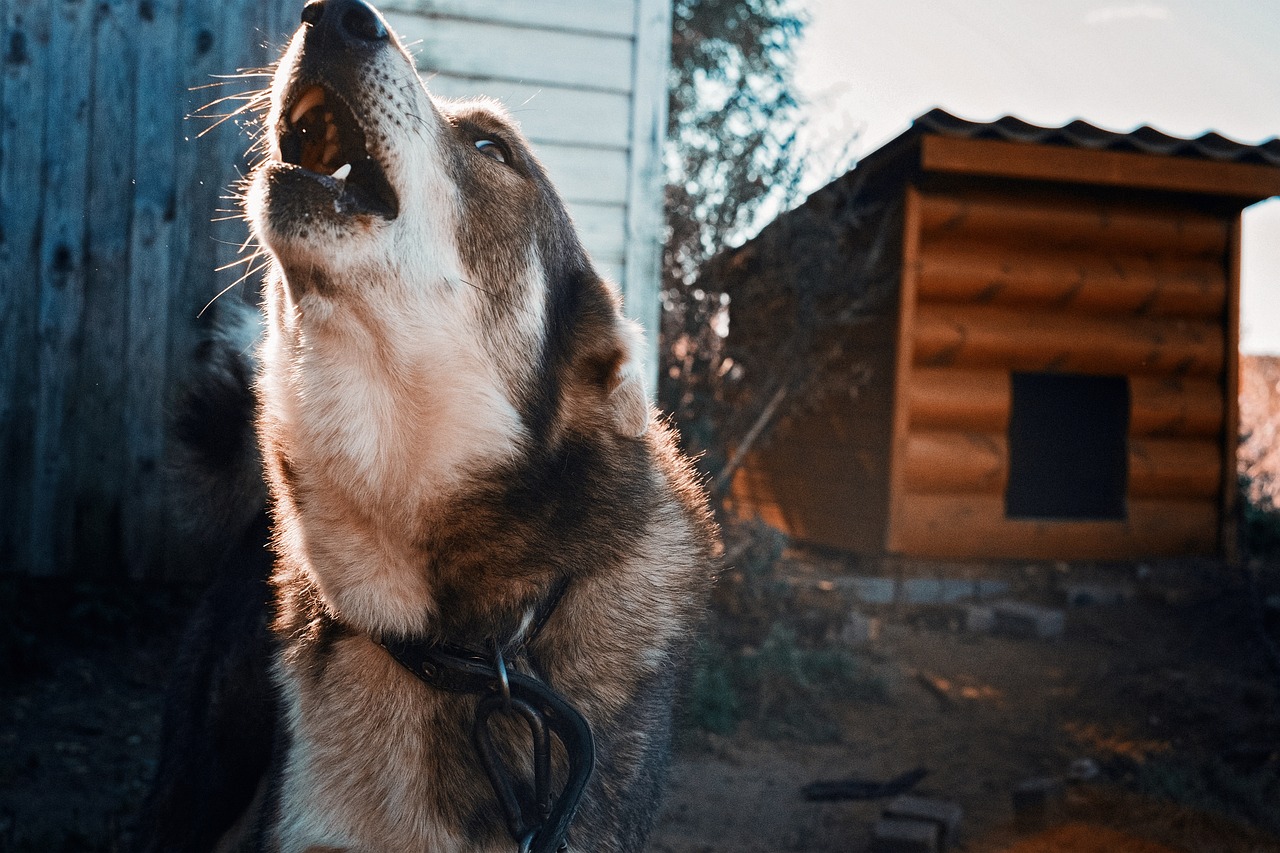
Dog is howling for attention
Dogs are known for their ability to communicate with humans and other dogs through barks, growls, whines, and howls. Howling is a natural behavior of dogs that have been observed across different breeds and ages. Dogs howl for various reasons including to alert others of their presence, to express their emotions such as loneliness or anxiety, or simply because they enjoy the sound.
However, the question remains: why do dogs howl? One theory suggests that dogs inherited this behavior from their wolf ancestors who used howling as a means of communicating with other members of the pack over long distances. Another theory involves the idea that domesticated dogs may use howling as a way to gain attention from their owners.
Regardless of the reason behind it, dog howling is an intriguing behavior that has fascinated both dog owners and researchers alike. By paying close attention to our furry companions' sounds and movements, we can gain deeper insights into their behaviors and personalities while strengthening our bond with them.
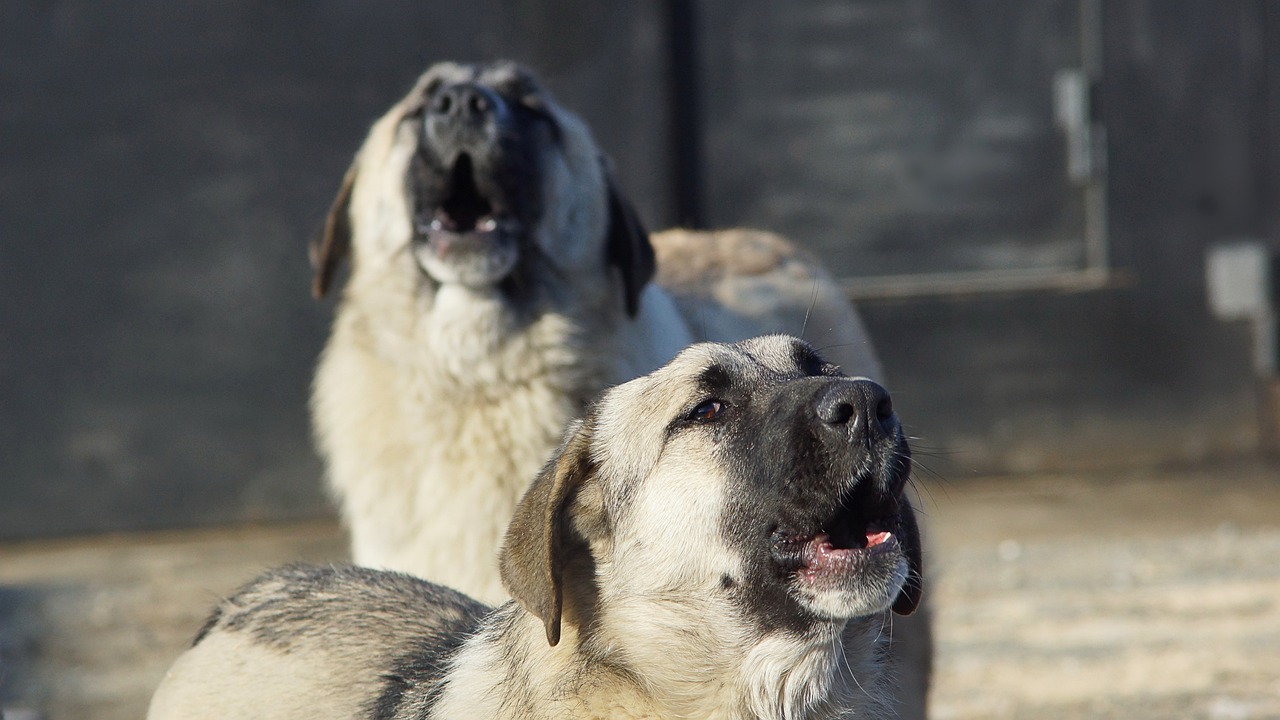
Canine Response to Sounds like sirens
In some cases, dogs may also howl in response to certain sounds, such as sirens or musical instruments. This behavior may be driven by an instinctive desire to join in with the noise-making or to signal their presence to others who can hear the sound. However, not all dogs respond to these types of sounds in the same way – some may simply ignore them while others will immediately start howling.
Overall, understanding why dogs howl can help us better communicate with and care for our furry companions. Whether it's responding appropriately when your dog starts howling at a particular sound or recognizing when they might be trying to communicate something important through their vocalizations, staying attuned to your pet's needs and behaviors is key for building a strong and healthy bond between you and your four-legged friend.
Pain/Illness and medical issues
Pain and illness can cause dogs to howl, as it is their way of communicating distress. Dogs may howl when they are in pain or discomfort, such as when they have a stomach ache or an injury. Pet owners need to pay attention to their dog's behavior and vocalizations, as this can indicate a need for medical attention.
In addition to physical pain, dogs may also howl due to emotional distress. Separation anxiety, fear, and loneliness are common causes of howling in dogs. Pet owners need to provide their dogs with proper socialization and mental stimulation to prevent these types of issues.
In summary, while howling may seem like normal behavior for dogs, it can often be a sign of pain or illness. Pet owners should always monitor their dog's behaviors closely and seek veterinary care if necessary. Additionally, providing adequate socialization and mental stimulation can help prevent emotional distress that may also lead to excessive howling.

Dog has separation anxiety
Anxiety is a common condition that affects millions of people worldwide. It’s characterized by feelings of nervousness, fear, and apprehension about the future. Anxiety can be triggered by various factors including life events, trauma, medical conditions, or even genetics. Symptoms of anxiety can range from mild to severe and may include feelings of restlessness, irritability, sweating, difficulty concentrating, or sleeping.
Interestingly enough, dogs also experience anxiety just like humans do. They may exhibit signs such as howling excessively when left alone at home or in unfamiliar environments. This behavior is often referred to as separation anxiety and it’s quite common among dogs that have been adopted or rescued from shelters. Dogs howl as a way of communicating with their owners especially when they are feeling lonely or scared.
However, other factors such as boredom or hunger can trigger excessive howling in dogs which may become annoying if not addressed promptly. Fortunately, there are various ways of managing dog anxiety including regular exercise routines, crate training techniques, and using anti-anxiety medications where necessary. As responsible pet owners, it's important to understand the underlying causes of a dog howling so that we can provide the necessary support and care for our furry friends whenever they need us most.

Understanding Dog Howling
Dogs have a unique way of communicating, and howling is one of their most distinctive vocalizations. While some may think that dogs howl only at night, they can actually do it at any time of the day. There are several reasons why dogs howl, and understanding them can help you interpret your pet's behavior.
Firstly, dog howls are a means of communication with other dogs. It allows them to communicate over long distances in search of companionship or to alert others about potential danger. Secondly, dogs can also howl as a response to external stimuli such as sirens or musical instruments. They may feel the need to join in with the noise or express discomfort.
Lastly, dog owners should pay attention when their pets start howling excessively as it could indicate underlying health issues or anxiety problems. Dogs who suffer from separation anxiety tend to howl when left alone for long periods. Overall understanding why your dog is howling can help you build deeper connections with them and ensure they receive proper care if necessary.
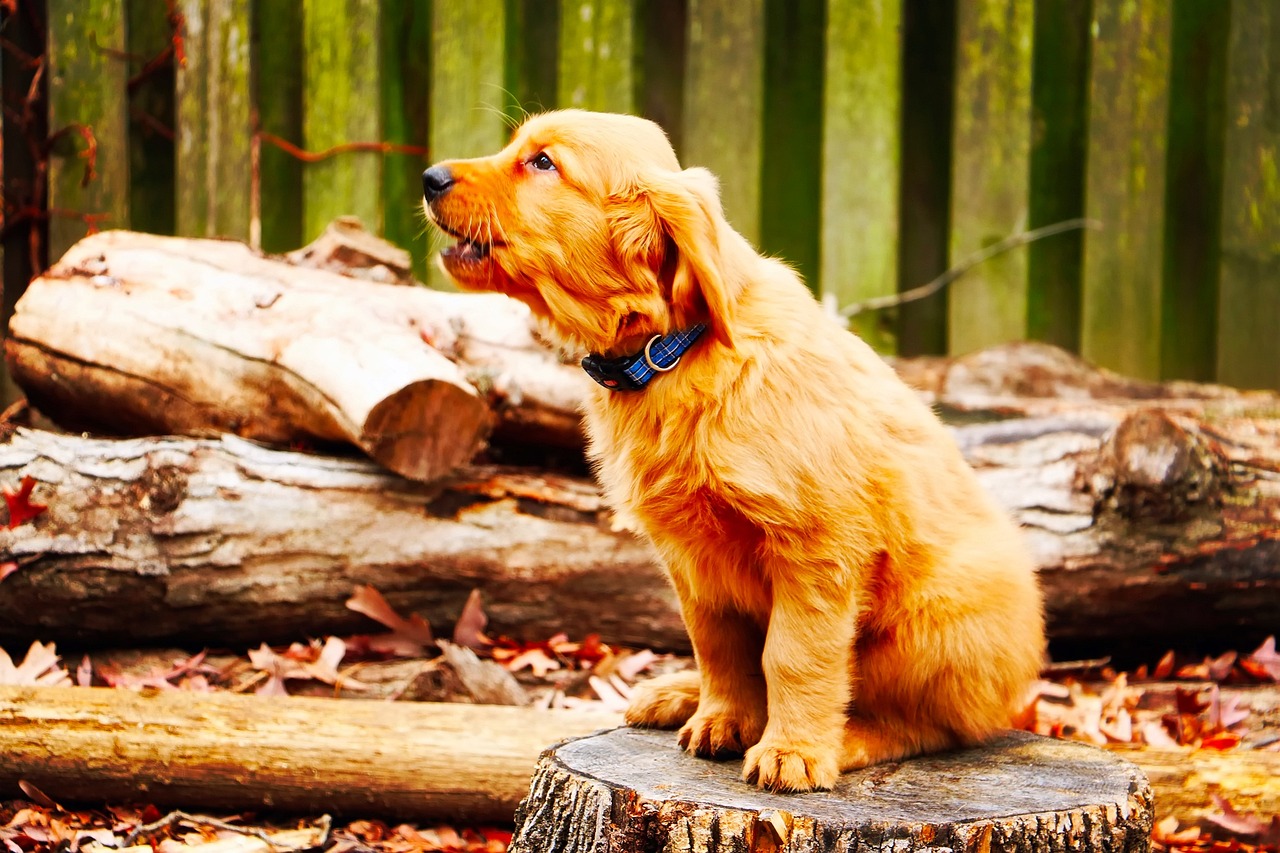
Breeds That Howl More
Dogs have their unique ways of communicating with humans and other animals, and howling is one of them. Howling is a natural behavior in dogs that helps them to communicate over long distances. It's also a way for them to express their emotions such as excitement, loneliness, or anxiety.
Some dog breeds are known to howl more than others, and this can be attributed to their genetic makeup. For instance, the Siberian Husky is a breed that loves to howl due to its ancestry as sled dogs. They were bred to work together in packs for long hours on end and would use howling as a means of communication when they were separated from the rest of the team.
Another breed that tends to howl more often is the Beagle. These fun-loving hounds love making noise and tend to bark and bay even when there's no obvious reason for it. They're also known for having an excellent sense of smell which makes them great hunting companions but can also make them more vocal than other breeds. The Beagle is a very friendly breed that loves to be around people. They're also very good at learning tricks and can make great family dogs.
Overall, while some dog breeds may be more prone to howling than others due to genetics or breeding purpose, it's important not to generalize all dogs within a particular breed category as every individual dog has unique personality traits and characteristics that may differ from others within its breed group.
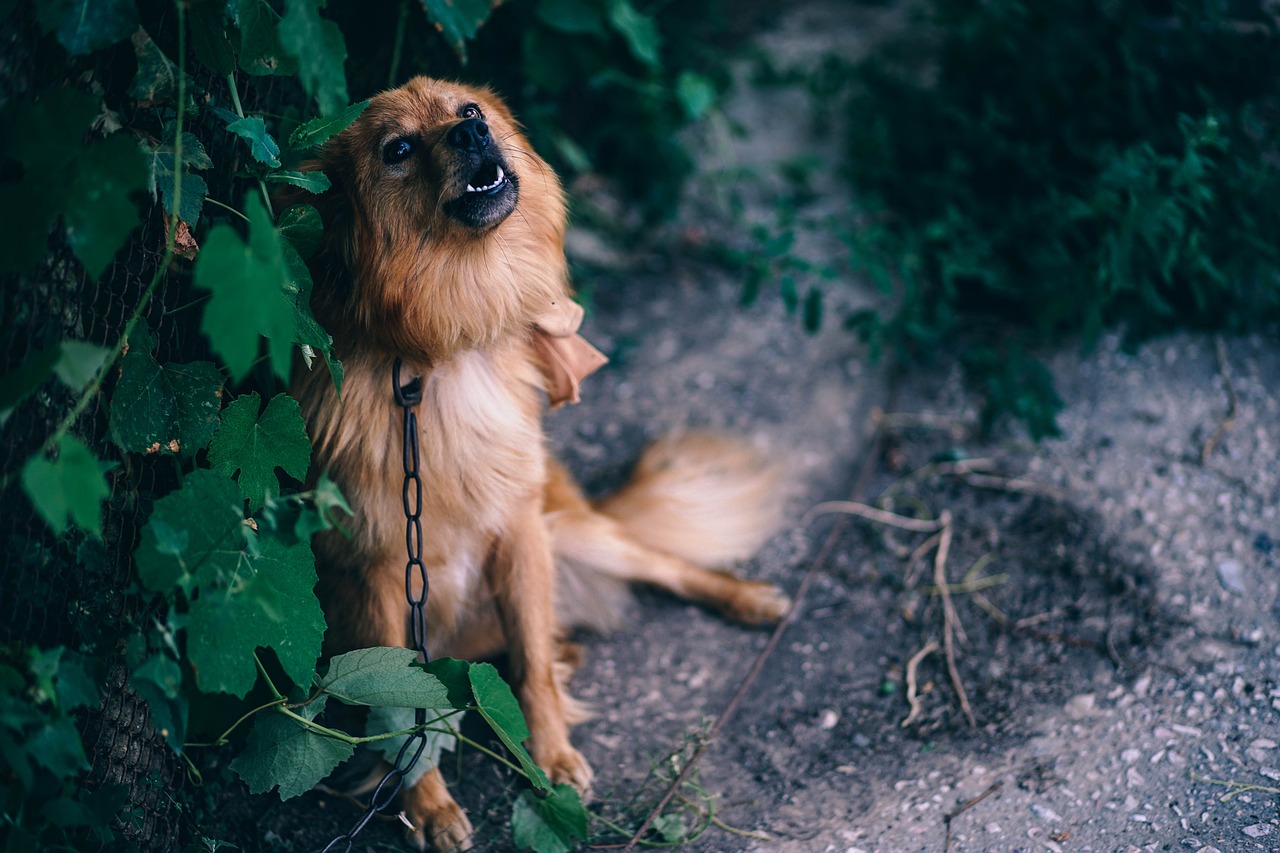
Training to Reduce Howling
Dogs howl for different reasons, and this behavior is quite natural. In some cases, dogs howl to communicate with other dogs or their owners. For instance, when a dog wants to get attention from its owner or is trying to locate them, it may howl. Dogs may also howl when they are in pain or feeling lonely. However, excessive howling can be a nuisance and cause problems for both the dog and its owner.
Training can be an effective way of reducing excessive howling in dogs. One approach is to gradually desensitize the dog to triggers that cause it to howl excessively. For example, if the dog starts barking whenever someone rings the doorbell, you can train it by having someone ring the bell repeatedly until the dog no longer responds by barking or howling excessively.
Another technique for reducing howling involves teaching your dog basic obedience commands such as “quiet” or “stop.” These commands will not only help you control your pet’s behavior but also establish yourself as the pack leader in your household. With consistent training and patience, most dogs can learn these commands and stop excessive barking within a few weeks or months.
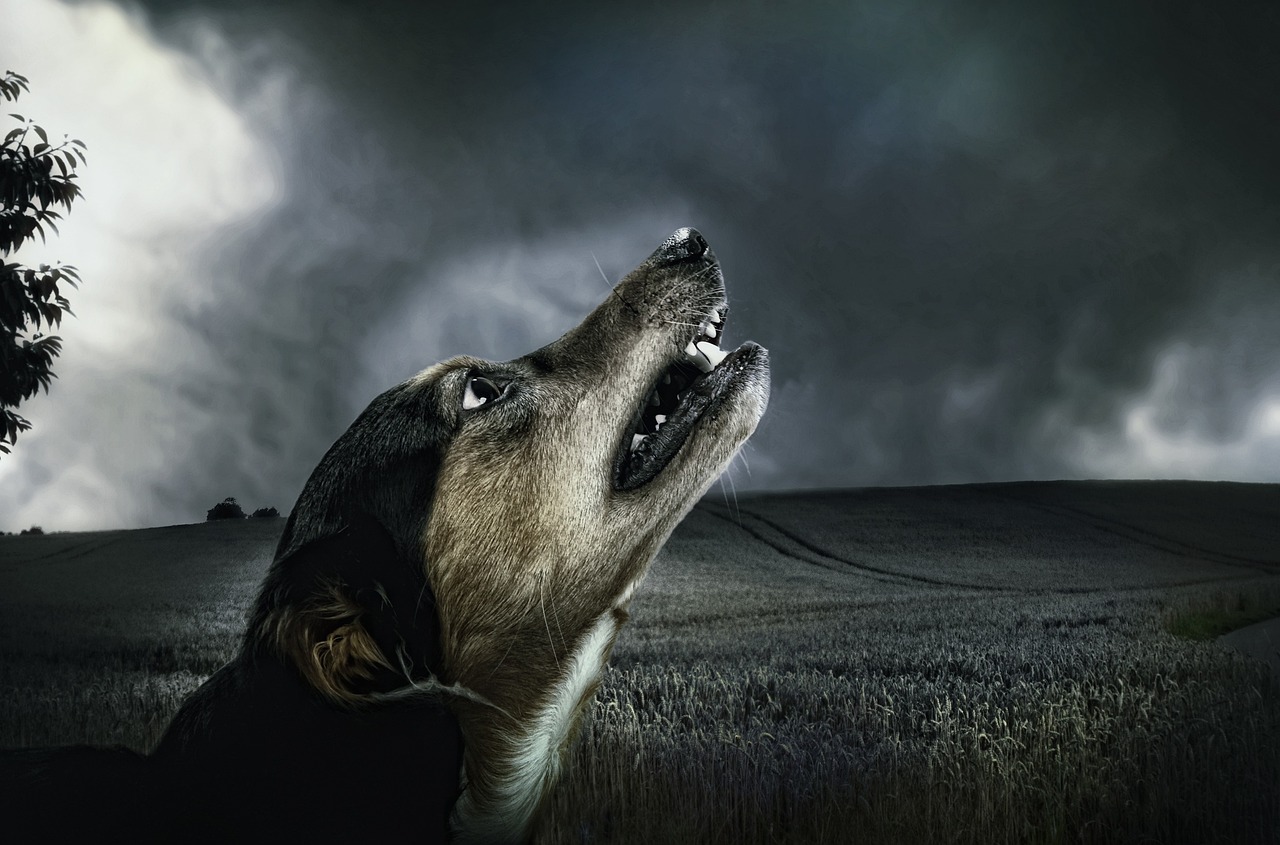
Conclusion
In conclusion, dogs howl for a multitude of reasons. Some of the most common causes include separation anxiety, seeking attention, displaying territorial behavior or simply communicating with other dogs. Howling can also be a learned behavior, passed down from one dog to another within a pack.
While howling may be natural for dogs, excessive and prolonged howling can be indicative of underlying health issues or behavioral problems. As pet owners, we should always pay attention to our furry friends and monitor their behaviors closely. If your dog is excessively howling or displaying other concerning symptoms, it is important to seek the advice of a veterinarian.
Overall, understanding why dogs howl can help us better communicate with our pets and ensure their overall well-being. Whether they are trying to alert us of danger or simply expressing their emotions through sound, we should always strive to provide our four-legged companions with the love and care they deserve.
Hills Pet Why do dogs howl?
https://www.hillspet.com/dog-care/behavior-appearance/why-do-dogs-howl
Daily Paws Dog howling and why do dogs howl?
https://www.dailypaws.com/dogs-puppies/dog-behavior/common-dog-behaviors/dog-howling
Ceasars Why do dogs howl?
https://www.cesarsway.com/why-do-dogs-howl/
Country Living Why do dogs howl?
https://www.countryliving.com/uk/wildlife/pets/a36362419/why-do-dogs-howl/
Pet Cube Why do dogs howl?
https://petcube.com/blog/stop-dog-howling/
Broadway Pet Hospital Why do dogs howl?
https://broadwaypethospital.com/blog/why-do-dogs-howl/
Pet MD Why do dogs howl?
https://www.petmd.com/dog/behavior/why-do-dogs-howl
Pet Insurance Why do dogs howl at sirens?
VCA Canada Why do dogs howl?
https://vcacanada.com/know-your-pet/why-do-dogs-howl
Why do dogs howl video
https://www.youtube.com/watch?v=PffrzGCyF7k
News Arvis Why do dogs howl?
https://news.orvis.com/dogs/why-do-dogs-howl
Pumpkin Why do dogs howl?
https://www.pumpkin.care/blog/why-do-dogs-howl/
